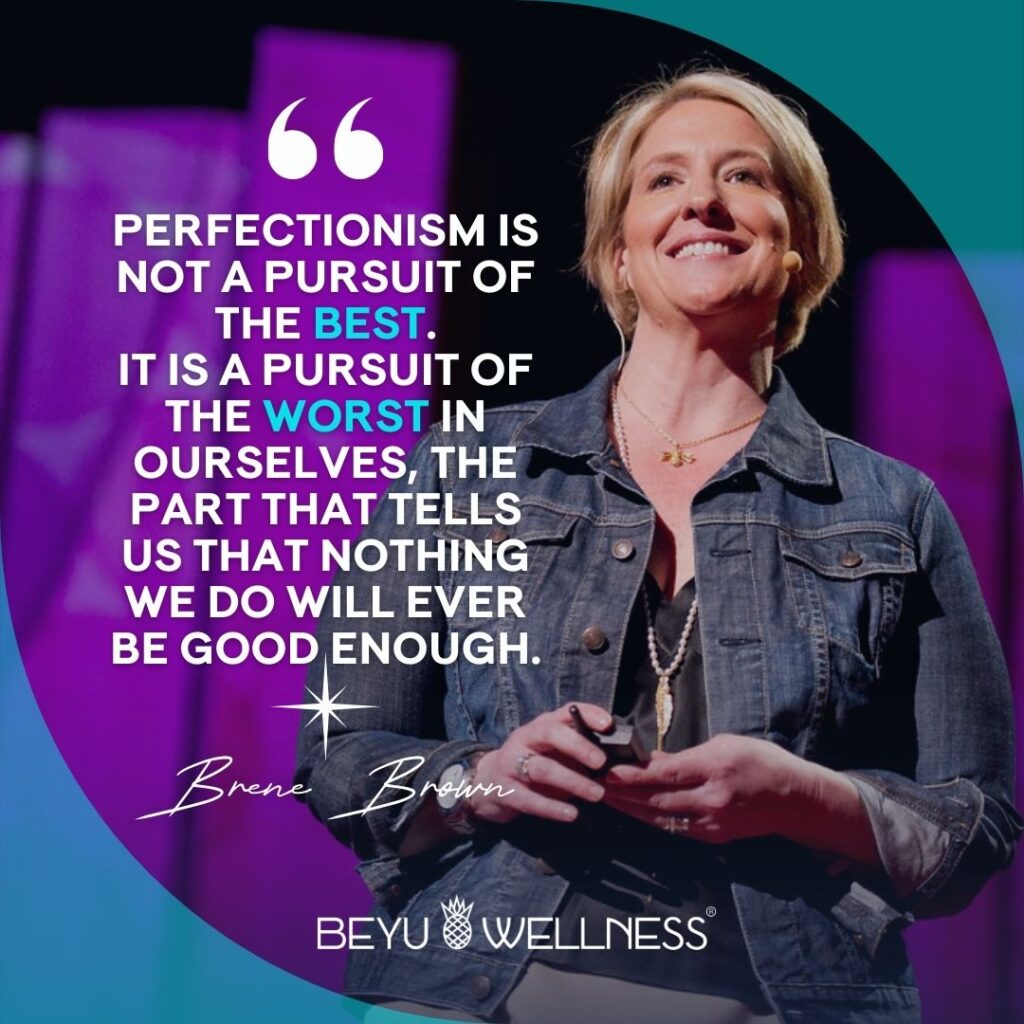
Do you have higher standards than everyone else?
Are you yourself’s biggest critic?
Do you find it challenging to let go of the details and enjoy the moment?
If so, welcome to the Perfectionist Club! You are among 10% of the population alongside with Leonardo DiCaprio, Robin Williams, Brene Brown, and guess who – myself.
Being a perfectionist was a big stigma for me that chased me most of my life. After getting to the edge of burnout several times, and living with low self-esteem, I decided to explore ways to overcome perfectionism. But wait, isn’t perfectionism a character or part of our personality? It is, but with some self-work, you can turn perfectionism to your superpower.
In this article, I’ll share my personal experience from being an avoidant perfectionist to turning into a thriving perfectionist. We’ll cover topics like what triggers perfectionism, the positive and negative outcomes of being a perfectionist, and how I turned my perfectionism to my favor in 5 steps.
Ready?
Let’s dive in!
According to Merriam-Webster, a Perfectionist is someone who is setting unrealistically demanding goals accompanied by a disposition to regard failure to achieve them as unacceptable and a sign of personal worthlessness. Being a Perfectionist refers to having a personality trait characterized by an excessive concern for precision, setting extremely high standards, and being overly self-critical.
In my pursuit of finding the root cause of being a perfectionist, I came across three main themes that I believe are the underlying cause of perfectionism.
Just like anything else, being a Perfectionist comes with pros and cons. In my philosophy, you win the game when you can turn any negative to a positive. So, it’s crucial to understand which negative outcomes you need to turn into your superpower.
You cannot take a magic pill or hire someone to do this work on behalf of you. This is your journey, and if you want to have a better quality of life and be more happy and content with yourself, you have to put in the effort to do it yourself.
The first step of change always starts with awareness and becoming aware of the problem. I found self-assessment tools very helpful in identifying certain behavior patterns. That’s why I thoughtfully curated a library consisting of the most effective self-assessment tools available online so you can start your self-discovery journey for FREE.

You’ll get access to the most effective self-discovery resource library available online consisting of personality, career, psychology tests, and more.
Thanks to my friend circle, I got introduced to the powerful world of NLP, which stands for Neuro-Linguistic Programming, helping me reframe my mind and transform from a fixed to a growth mindset. As an NLP Practitioner, I can help you:
Chasing perfection can be exhausting. So adding space for play and enjoyment is critical. In my case, I prioritized activities such as playing beach volleyball in the summer and traveling to the mountains for snowboarding in the winter. That way, I kept myself stimulated year-round. These experiences helped me stay engaged and excited with my core values and gave me a sense of fulfillment.
The second area that I had to rebalance was creativity and self-expression. As perfectionists, we have a tendency to block our creativity or hide our emotions just because we think it is a weakness. My Emotional Intelligence Training gave me the a-ha moment to break my chain on this. Ever since, I’ve been intentionally placing my feelings at the center of the universe. This makes me switch from thinking what I should be doing to more about what I want to do. Even writing this article is pushing me away from perfectionism and allows me to get creative and express myself without judgment.
Have you heard of the 20/80 Rule before? This rule is also known as the Pareto Principle, which states that 80% of our results come from 20% of our efforts. In simple words, it’s about identifying the things that create the most value for your goals, then focusing your time and energy on them.
For instance, 20% of your to-do list accounts for 80% of your results. Or you can use it in your personal life–maybe 20% of your relationships give you 80% of your happiness and fulfillment.
So, the 20/80 rule emphasizes channeling your focus on the things that matter the most and prioritizing your life accordingly. As a perfectionist who values productivity and efficiency, this prioritization tool helped me optimize my daily tasks for big results that helped me celebrate myself more and feel fulfilled.
The problem with perfectionism is setting unachievable and unrealistic goals, which contradicts the SMART goal-setting framework. In one of my leadership trainings, I discovered that writing down my goals helped me stick to the set goal rather than modifying the goal to set the bar higher along the journey. I believe setting SMART goals is an essential method not only to evaluate your success but also to keep yourself down to earth. That’s why it is part of my coaching practice. Setting clear goals at the beginning of the coaching program helps my clients see their progress and achievements within the 6-month period.
Remember that you may be imperfect, as everyone is, and the best you can do is reach for excellence. Surround yourself with people who appreciate your strengths and who can call you out if you’re asking too much of yourself. No matter how many mistakes you’re making, you are worthy of love and approval.
When we are operating at our best, we are a powerful force for change in the world. We passionately pursue what we perceive to be right and fight hard to remove all that is corrupt or ill-intentioned. We are able to connect and care for our communities and act as bold advocates for justice, growth, and reform. Although it is never easy to examine and overcome our old patterns, Ones who do so will find that life can be even richer and more inspiring than they ever thought possible.
During my journey, I didn’t have much support or guidance to find my way out. I had to figure things out on my own, but it took me several years to get to this point. If you have the patience and time to explore on your own, please do so. Yet, remember TIME is the most valuable asset that we have as perfectionists. If you are ready to turn perfectionism into your superpower with 6 months with proven results, click on the banner below to schedule a FREE coaching session with me. This 15 minutes could change the quality of your life forever.
"Perfectionism is not a pursuit of the best. It is a pursuit of the worst in ourselves, the part that tells us that nothing we do will ever be good enough."
Brene Brown
No Comments